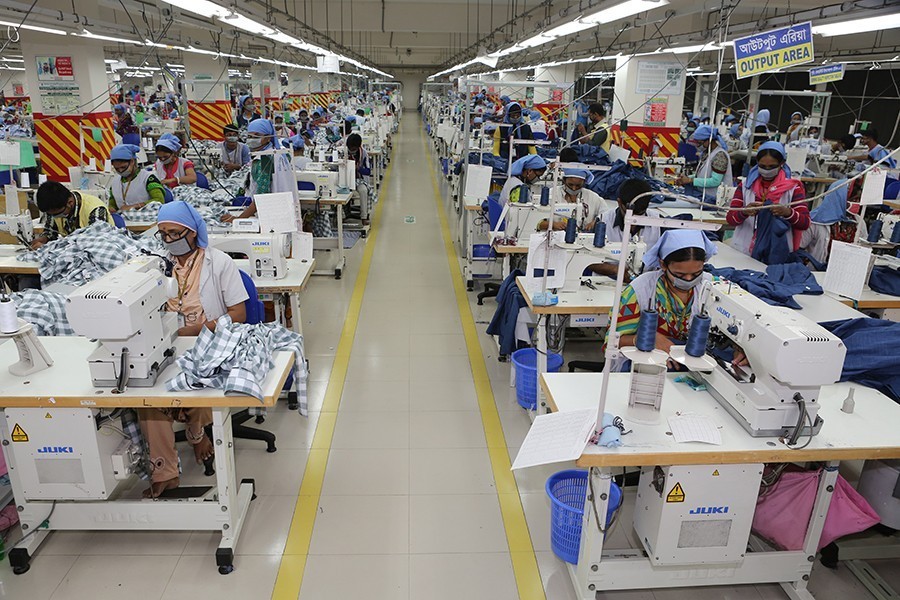The readymade garment industry might fail to realise or face deferred payment worth US$3.0 billion because of the Covid-19 pandemic, exporters say.
Local clothing exporters faced $3.18 billion work order cancellations or suspension during the pandemic. Of the total, $1.93 billion work orders were cancelled or held by buyers from European Union, followed by $574 million by US, and $ 52 million by Canadian buyers.
Besides, $ 620 million were cancelled or held by buyers from non-traditional markets.
During March to June period of the current calendar year, RMG export earnings declined by US$5.28 billion over that of last year, and the unsettled liability would be around US$2.11 billion, according to the Bangladesh Garment Manufacturers and Exporters Association or BGMEA.
The BGMEA revealed the statistics at a virtual discussion held on Saturday organised by the Bangladesh Malaysia Chamber of Commerce and Industry or BMCCI.
BMCCI president Raquib Mohammad Fakhrul presided over the event where BGMEA senior vice president Faisal Samad was the speaker.
Speaking at the event, Mr Samad said the impact on the RMG industry will not be limited to the sector alone and could have knock-ons on other industrial, consumers and service sectors.
Garment exports growth fell by 18 per cent in last fiscal year, the first in the history, he said, terming the current situation 'difficult' for all industries, both locally and globally.
BMCCI president Raquib Mohammad Fakhrul said Bangladesh's economy remains highly dependent on the RMG industry for employment, foreign reserves and women empowerment.
Bangladesh's overdependence on apparel export might prove to be its Achilles heel, he said, adding large scale order cancellation and deferment are causing a liquidity crisis across the sector, prompting the industry leaders to appeal for support, both from international buyers and the government.
Minister counsellor at the high commission of Malaysia in Bangladesh Mohammad Khalil Ibrahim said the COVID-19 has changed the purchasing habits of the world within a month.
In a competitive environment, companies have to put their focus on the fast-growing trends in information technology for cost efficiency and survival, he noted.
The only way to retract orders for the spring collection would be to offer even lower prices than before, a feat almost impossible to pull off given how circumstances stood before Covid-19, he said.
He, however, expressed the hope the local RMG industry will emerge more stronger and resilient during the post-Covid than before the pandemic.
He recommended local apparel makers opt for manmade fibre or synthetic to grab the $1.8 billion Malaysian retail apparel market. BMCCI former president Syed Moazzem Hossain said that new orders are not coming, especially in sweater segments while buyers are asking for deferred shipments of goods, orders made in March last.
He also apprehended that more factories might face closure in from August onwards when the real impact of Covid-19 might be visible.
He alleged banks are not distributing the stimulus package of Tk 300 billion working capital for industries and urged the trade bodies to look into the issue.
BMCCI senior vice president Anwar Shahid suggested the diversification of both markets and products, increasing workers' productivity, and producing value-added items.
His other recommendations included to look into the issues and explore the ways how to sustain duty-free access of locally-made products, including RMG, after graduation from the LDC status.


